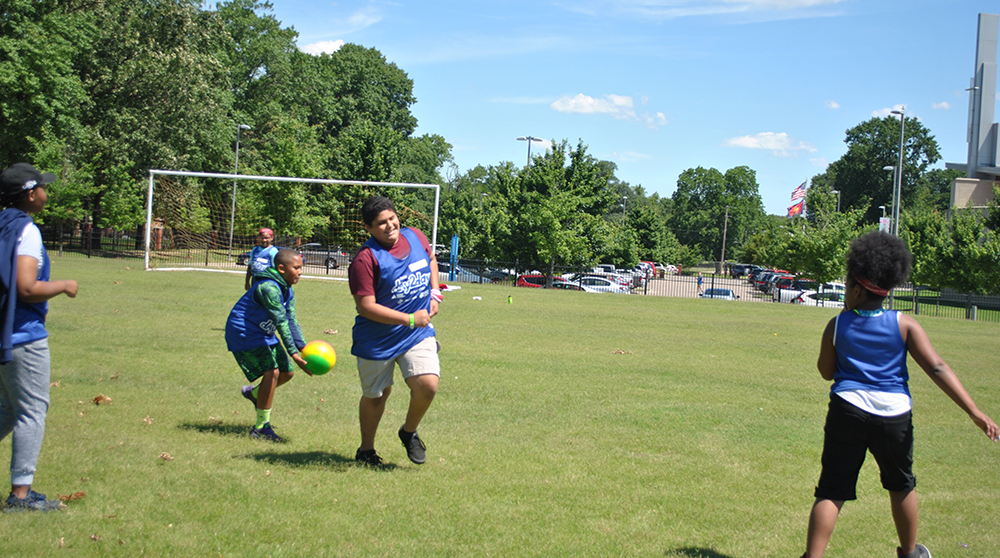A Look at Our Community Summer Camp for Kids with Diabetes

President and CEO Jason Little on the Mission of Camp Day2Day
The American Diabetes Association (ADA) estimates that more than 1 million people in Tennessee have prediabetes. That number includes children as young as six years old. Managing diabetes as an adult can be challenging, but it can be especially difficult for children.
To help children in our Memphis community cope with both the physical and emotional burdens of this disease, Baptist Memorial Health Care and the American Diabetes Association partner on a weeklong summer camp called Camp Day2Day. This free camp―open to kids between 7 and 16 years old who have diabetes, prediabetes or diabetes risk―looks like any other summer camp at first glance. The kids swim, play games, make crafts and engage in other fun activities.
But a closer look reveals the true nature of the camp and its importance. Campers learn how to read food labels, count their carbohydrates and increase their activity levels. Nurses and dietitians regularly monitor campers’ blood glucose to make sure their levels aren’t too high or too low. And campers get expert help picking their lunches to make sure they don’t have too many carbohydrates or sugars. Campers also take field trips to the grocery store and museums so they can continue to learn about food labels and making healthy food choices. Special guests include social workers and race car drivers who have diabetes.
At the end of each day, campers are exhausted but happy. They’ve made new friends and learned that they’re not alone in managing a chronic illness. They’ve also experienced the normalcy of being at summer camp like other kids.
ADA estimates that an educational diabetes camp like this normally costs $400-500 per camper, but with the help of other community partners, we’re able to offer this camp to our community at no charge. Addressing community health needs is part of our mission of preaching, teaching and healing. I believe there’s no better way to use our resources than to help our community address a serious health issue like diabetes.
